

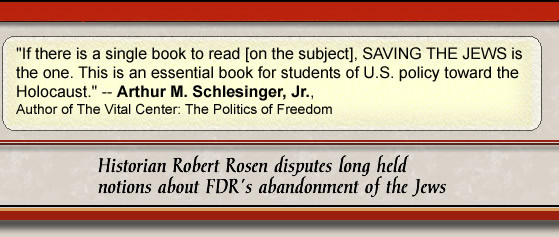
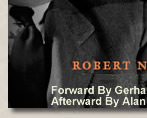

|
Reviews |
|
|
|
|
|
|
Why I Wrote The Book |
|
|
Excerpts |
|
|
Table Of Contents |
|
|
Auschwitz |
|
|
SS St. Louis |
|
|
Timeline |
|
|
A Survivor Speaks Out |
|
|
Carter Center Speech |
|
|
Justice At Nuremberg |
|
|
Purchase |
|
|
Related Links |
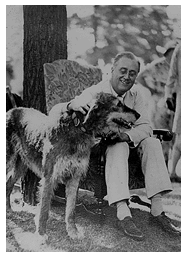 Many revisionists, both within the Church, and without, are attempting to explain why
Pope Paul XII didn't speak out more forcefully against anti-Semitism,
Nazism and the forces of evil of his day. In most instances the records of the Vatican
come up blank or shrouded in mystery because they are unavailable to historians for research.
Not so with the record of F.D.R. who was ahead of his time in speaking out for all minorities,
including Jews, and who apparently didn't have a mean bone in his entire corpus.
Many revisionists, both within the Church, and without, are attempting to explain why
Pope Paul XII didn't speak out more forcefully against anti-Semitism,
Nazism and the forces of evil of his day. In most instances the records of the Vatican
come up blank or shrouded in mystery because they are unavailable to historians for research.
Not so with the record of F.D.R. who was ahead of his time in speaking out for all minorities,
including Jews, and who apparently didn't have a mean bone in his entire corpus.
Over the centuries wherever Jews settled in communities we became "the other" - one of those groups that people would point out as being different. Thus it was in America even though everyone except the native aborigines (the "Indians") came from somewhere else. As before, anti-Semitism sprouted its ugly wings. Because of our urgent need for community, including being able to walk to shul on Shabbos, Jews would congregate near shuls. Even pre-dating the arrival of chassidim in America, gentiles could not mistake the fact that observant Jews dressed differently - head covering for men, modest attire - even in warm weather - for women, etc.
It was into this milieu that both F.D.R. and Hitler arrived at nearly the same time.
"Saving The Jews" deals exhaustively with such subjects as the (non) admission of Jewish refugees from Nazism into America during the pre-war and war years; the failure to bomb Auschwitz and the railroad tracks leading to it; the progress of the war on both the European and Pacific fronts; American and international politics vis-?-vis the establishment of Israel; the development of the Atomic bomb; the voyage of the St. Louis to Havana, Cuba, with nearly 1,000 German refugees - most of whom were returned to Europe; the anti-Semitism of the State Department and its contribution to banning admission of Jews who may have been granted refuge in America.
This book may be over 527 pages in length but it's an "easy read" a "must-read" and well worth reading for any intelligent person who doesn't want to trust the revisionists of history. Rosen includes a bibliography of original source material - much of which he shows has been misquoted by the revisionist historians. In essence - Robert Rosen puts F.D.R. right back on the pedestal where he belongs. He was a patrician, born to comfort and luxury who disdained his own comfortable existence because he saw that there were wrongs to right, both in America and on the world scene.
The America of F.D.R.'s time became extremely isolationist due to the incessant wars between European powers. America had no idea of its greatness and capacity for dealing with global concerns. F.D.R. however understood Nazi Germany's agenda to conquer the world and eliminate millions of people and was determined to stop the evil empire in its tracks.
The Jewish Press - Review By Aharon ben Anshel
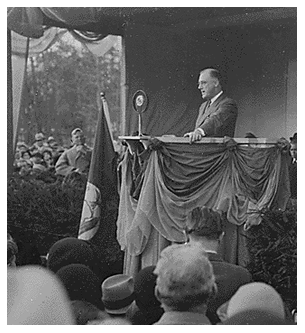
Library Journal Review By - Frederic Krome, Jacob Rader Marcus Ctr. of the American Jewish Archives, Cincinnati
Jay Freeman - "Booklist", a publication of the American Library Association
Copyright ? American Library Association. All rights reserved.
In this well-researched and highly readable book, Robert N. Rosen defiantly attempts to save the tarnished reputation of Franklin D. Roosevelt regarding the tragic fate of European Jewry during World War II.
Rosen, a lawyer and historian, became interested in this complex theme in 2001 when he and his daughter visited the Holocaust Memorial in downtown Boston. They both were baffled by an etched message: "By late 1942, the United States and its allies were aware of the death camps but did nothing to destroy them."
The New Deal president, who was much admired by that era's Jews as an iconic figure, has come under criticism by scholars for his alleged failure to do more for Europe's doomed Jews. Rosen examines the context in which FDR operated , asserting that he tried his best to first defeat Nazism and thus save as many Jews as possible. In addition, the president had to overcome an isolationist America with anti-Semitic tendencies .
Hitler's goal of world domination involved the total annihilation of the world's 19 million Jews, including Europe's 11 million. Consequently, argues the author, FDR deserves praise for preventing Germany from fully accomplishing this monstrous design by ending the war as soon as he did.
FDR's effort included essential aid for the U.S.'s embattled allies, the British and the Russians. Assisting the British in North Africa was intended to prevent Rommel's troops from reaching Palestine and eliminating its Jewish population, Rosen contends. Early on, after the events of Nov. 9 and 10, 1938 - the first mass attack on Jews and synagogues - FDR sent a clear message by withdrawing the American ambassador to Germany.
A sore point is the May 1939 voyage, originating in Hamburg, Germany, of the S.S. St. Louis, with 936 Jewish refugees aboard . The ship was turned away from Cuba and the U.S. and forced to return to Europe, in spite of the work of Secretary of the Treasury Henry Morgenthau. Ultimately, 227 of the passengers were killed by the Nazis.
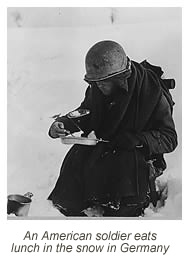 FDR's assistants, Rosen maintains, prevented the deaths of many more Jews by persuading countries other than Germany to accept them. He also asserts that FDR's sympathy for the refugees' plight was thwarted by a tough immigration policy. Rosen writes that the decision not to bomb railways leading to Auschwitz, or the death camp itself, was partly due to FDR's reluctance to kill inmates .
FDR's assistants, Rosen maintains, prevented the deaths of many more Jews by persuading countries other than Germany to accept them. He also asserts that FDR's sympathy for the refugees' plight was thwarted by a tough immigration policy. Rosen writes that the decision not to bomb railways leading to Auschwitz, or the death camp itself, was partly due to FDR's reluctance to kill inmates .
Rosen believes that FDR's support for the Jews is also expressed in the unsuccessful effort, in Feburary 1945, to convince Saudi Arabia's King Ibn Saud of the urgent need for a Palestinian home for the Holocaust's survivors.
In the book's foreword, historian Gerhard L. Weinberg calls us to remember the times' context and the great American struggle, which included more than half a million Jewish soldiers, to defeat humanity's enemy. In an afterword, Harvard professor Alan M. Dershowitz cautions that no president, not even FDR, is beyond reproach and argues that he should have fired Breckinridge Long, special assistant secretary of state, for his obstructionist conduct.
This important book provides us with a more balanced perspective for further critical discussion of a watershed period, even as painful questions persist.
Rabbi Israel Zoberman, spiritual leader of Congregation Beth Chaverim in Virginia Beach, is a son of Polish Holocaust survivors.
Copyright © 2006 The Virginian-Pilot
Warren Kimball - Author of several books on Roosevelt
"Combining the skills of a scholar, an historian, and a brilliant lawyer, Robert Rosen has written a definitive contribution to the anguished discussion of America's relationship to the Holocaust."
William J. vanden Heuvel, co-chair, The Franklin and Eleanor Roosevelt Institute, Former U.S. Ambassador to the United Nations
(Professor) William D. Rubinstein, University of Wales-Aberystwyth
- author of The Myth of Rescue.
James McGregor Burns, author of Roosevelt: The Soldier of Freedom
The latest book from Charleston attorney historian Robert Rosen sets the record straight regarding the efforts of President Franklin D. Roosevelt and American Jewry to save European Jews from Hitler’s Final Solution.
Since the 1960s, revisionist historians have tried to recast Roosevelt and American Jews as apathetic in the face of the worst crime in history. Some have even labeled Roosevelt as anti-Semitic.
Rosen’s book is a detailed outline of Roosevelt’s efforts to save the Jews wherever possible and, even in the last weeks of his life, to cajole the Saudi prince to allow the refugees to form a homeland in Palestine.
Rosen admits that Roosevelt made mistakes and trusted people in the State Department who were secretly working against his efforts to make room for the refugees in America. But he makes it clear that Roosevelt was the first to take Hitler seriously as a threat to European Jewry and provided the decisive leadership in the effort to defeat Hitler as quickly as circumstances allowed.
Those circumstances involved the wars in the Pacific and the Atlantic, the ground war in Europe, working to hinder the efforts of the Nazis advancing on Russia, Japanese internment and leading an America already divided over the enormous influx of Eastern European Jews in the late 1930s. Rosen addresses these issues with the same clarity and documentation.
The last section of “Saving the Jews” rebuts the seven major accusations against Roosevelt on by one, with clear and convincing evidence that establishes that Roosevelt did what he could with knowledge and authority that he had. Throughout the book, a number of themes emerge: Modern critics have more facts at their disposal, hindsight is 20-20, the Holocaust happened in the larger context of World War II and the grisly realities of the atrocities were beyond the capacity of rational men of that era to accept.
In light of all of this, Roosevelt was ahead of his time in perceiving the nature of the threat, if not its scope, and was most likely correct in believing that defeating Hitler was the only tenable means of saving European Jewry. Rosen points out that many of Roosevelt’s detractors seem to think that Hitler’s Final Solution occurred in a vacuum and that the concerns of the war were distinct from, and secondary to, the Holocaust. As for the so-called apathetic Jews in America, they had sons fighting all over Europe and the record of their efforts matches that of any group of Americans.
Grantley Gibbons, "Charleston Post & Courier", (April 30, 2006)
Since the Holocaust became the moral focal point of World War II, Franklin Delano Roosevelt and his administration have faced an increasing drumfire of denunciation. From his refusing admission to prewar refugees to his failing to bomb Auschwitz-Birkenau, the record is so presented as to depict Roosevelt as a trimmer at best and a moral coward at worst, complicit at least by omission in history’s greatest crime.
What did the President know?
Saving the Jews is an eloquent revisionist reinterpretation affirming the realities, the limitations, and the achievements of Roosevelt’s, and America’s, war against the Holocaust. Rosen, an attorney who was previously written on the subject of Jews in the Confederacy, deploys a broad spectrum of archival and printed sources in a spirited challenge to the conventional assertion that “something should have been done.” In what amounts to a case for the defense, Rosen asserts Franklin Roosevelt spoke forcefully against Hitler’s Jewish policies well before Pearl Harbor. In December 1942, when ULTRA reports had confirmed the general massacre of Eastern European Jews, Roosevelt, Churchill, and Stalin issued a widely circulated condemnation of the “German Policy of Extermination” and promised retribution. Roosevelt continued to denounce Nazi atrocities, addressing the Jewish situation specifically and regularly.
Rosen does not absolve Roosevelt from errors in his conduct of the war against Hitler. He does hammer home the common-sense point that winning the war was the only way to stop Hitler. He argues persuasively that the President’s ability to save significant numbers of Jews during that war was minimal. Nazi Germany was unlikely to be deterred by threats, no matter how eloquent. Rosen appropriately contextualizes, for example, the Bermuda Conference of April 1943. Its State Department organizers may have had little desire to aid the Jews of Europe. Rosen asks rhetorically whether pressuring the State Department on the refugee question was more important than building the war machine and the alliance relationships that in less than four years annihilated a Nazi juggernaut that had seemed unstoppable.
Reconsidering Roosevelt’s Record
Had rescue been proclaimed a primary war aim, at that stage there was nothing the Allies could do to deflect the Holocaust’s course. Not until mid-1944 did the tide turn decisively in the Allies’ favor. By that time the Holocaust was for all practical purposes an accomplished fact.
Nazi Germany, moreover, controlled the sites of genocide until the war’s final days. The bombing of Auschwitz was deterred by the very real dilemma that deliberately killing camp inmates in an effort to stop other killing was certain to be futile. Rosen highlights an unfamiliar fact: No credible American Jewish leaders or organizations advocated bombing the camps at the time. To say “something should have been done anyway” is a post facto construction
Franklin Delano Roosevelt was the moral and political center of a global coalition unprecedented in history. He convinced his countrymen to fight a total war and stay the course to victory. Far from being the “bystanders” and “witnesses” of much current Holocaust mythology, Roosevelt and the American people fought and died to end the killing of innocents. Rosen correctly concludes that anyone asserting otherwise is “either a fool or a knave.”
Dennis Showalter - History Book Club
Author Robert Rosen has a bone to pick with academia. “Political correctness runs rampant in universities. Rewriting history this way has become a cottage industry,” he said.
A few years ago while visiting a Holocaust memorial in Boston with his then-15- year-old-daughter, Rosen was angered by an inscription that read, “By late 1942, the United States and its Allies were aware of the death camps, but did nothing to destroy them.”
Some of the best-known Holocaust scholars have poured vitriol upon President Franklin Delano Roosevelt for America’s alleged inaction in the light of the atrocities of the Second World War.
A Charleston divorce attorney with an MA in History from Harvard and five books under his belt, Rosen decided to tackle that version of events head on.
In Saving the Jews: Franklin D. Roosevelt and the Holocaust, Rosen argues that FDR was one of the few world leaders who possessed foresight and clearly understood the Nazi threat. Navigating innumerable political obstacles, the embattled President steered his country out of The Great Depression and into a war no one wanted to fight.
Far removed from European political turmoil and the empire-hungry forces churning in Asia, a bruised America was possessed of both anti-Semitism and a fear of communism that had given birth to strict immigration legislation in the 1920s.
Rosen provides an exhaustive account of the enormous political challenges Roosevelt faced, including fierce opposition to changes in immigration laws and involvement in Europe’s war from alleged Nazi sympathizer and celebrity Charles Lindbergh, populist Catholic radio broadcasters, and even his own party.
Born to privilege in New York, Roosevelt served as Senator, then Governor of New York before he was elected President in 1933. Stricken with polio in 1921, he was largely confined to a wheelchair.
FDR was remarkably free of the anti-Semitism common among his peers. Rosen argues. He counted many prominent Jews among his closest friends and political advisors; 15 percent of the highest offices in his government were occupied by Jews. Rosen even recounts a story where FDR furnished his kitchen with a set of dishes and brought in kosher food to accommodate observant guests.
Roosevelt governed a country in turmoil. His New Deal had helped alleviate the poverty and suffering of the nation’s 13 million unemployed, but he faced opposition from business and the financial sector.
Even as Germany marched into France and Hitler’s anti-Jewish rhetoric reached a fevered pitch, Americans largely opposed any kind of military action, including aid to Britain, the lone opponent against the Nazi scourge.
FDR loathed Hitler from the start, and Rosen illustrates how, in the face of opposition at home, the President skillfully and quietly readied his country to enter the war, meeting secretly with Winston Churchill and going so far as to provoke the Germans into giving him a reason to enter the fray.
More importantly, Rosen documents the many occasions and methods FDR used to increase Jewish immigration to the United States and the Allied countries and his consistent condemnation of German treatment of the Jews.
Dispelling the broadly held notion that Roosevelt, and America, did little to help European Jewry was Rosen’s motive for writing this history. “Academics show little understanding of politics,” said Rosen. “They write as thought the President can issue an edict to bring every Jew to America.”
His thorough account of FDR’s political brinksmanship is the key success of this book. Rosen calls upon little-known primary sources, including letters from Jewish organizations like the World Jewish Congress, to show that Jews implored the Allies not to bomb the camps and kill even more of their brethren.
A graduate of the University of Virginia, Rosen stands in profound disagreement with many Holocaust scholars who he says blame America for the Holocaust. “They write about it as though nothing else in the world was going on,” said Rosen.
The Holocaust is a hugely important event in modern Jewish history and it has deeply influenced how Jews define themselves, especially with regard to support for the state of Israel, agrees Rosen. “I don’t question anyone’s motives. These (Holocaust historians) are very sincere people. Their work is not unimportant, but it is unfair to heap blame upon the millions of Americans who fought to defeat Hitler, and who did, in fact, defeat Hitler.” He dedicated the book to his father and his father-in-law, who both served in the war.
“Can you imagine if FDR had failed?” Rosen asked.
The Virginia Jewish News - June 19, 2006